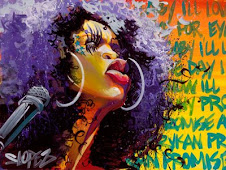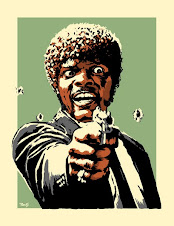
Kill Me Quick written by Meja Mwangi
This was the second book I borrowed from the African literature section in the school library, and it turned out to be a very pleasant surprise read! I honestly didn’t suspect it to be so deep so captivating so real…
From the style of writing with to the depth of the plot, the author effectively portrays the struggle to survive, the drive to pursue a better lifestyle, something we can all relate too.
Set modern day East Africa, Kenya to be exact, the plot revolves around these two characters, Maina and Meja; Yes, he deliberately uses his real name for one of the characters, making us assume the story is based on real life, his life experiences…which is really brave, and deep…you just know his gonna write about something so real…and it is:
Its about the difficulties of class mobility, the disappointments of the false hopes of education, the doomed destiny of the poor, how young able bodied educated good hearted men are turned into merciless street thugs and murderers, why they keep ending up in prison despite being genuinely sorry for having committed their crimes, it give a shockingly vivid insight into the lives of ‘slumdogs’, the people we prefer to turn a blind eye too.
What struck me most however is the myth that if you go to school, it will automatically lead you into a well paying job! These two characters, despite being from poor families in the villages, are educated and went to school, they took it seriously too and were top students…yet somehow when they came to the city, unemployment forced them to the backstreets and slums where they lived off rubbish bins. They could both read and write and count, yet the types of jobs available to them were those of farm hands and manual laborers! It was quite a somber thought; that because of one’s class, especially here in Africa, a person is most likely destined to only a certain type of work…
What bothers me even more is that these people work as much, and even more than we, yet earn so much less…I used to think that those who are rich and wealthy worked for it and hence deserved it, yet so many people out there work so hard and earn less than they deserve. This imbalance of society is well portrayed in this book.
As to how and why society became this way, I am not quite sure, and the book only gave me more questions than answers to this question…when did it all start?
(If you happen to have some answers please share them, if you have more questions, there welcome too…it will help me get that much closer to understanding this)
This what I do know, (simplified version): once upon a time, in Europe during the medieval ages, people fought for land, blood was shed and the victorious expelled the people of the land and claimed it was theirs, put land titles on ancestral land that belonged to others.
These people were displaced and forced to inhabit barren uncultivated land, whereas the victors had all the fertile land to themselves.
They then used the displaced people to help cultivate wealth for themselves, only giving them a little if anything at all for their labor.
That’s how the poor began working for the rich…that’s why there will always be a hate between the two…that’s why there is talk of revolutions, and taking back what was theirs in the first place by the use of force…but as history has proved, more bloodshed only leads to a swap of power, the poor become the rich and the rich become the poor, but inequality and manipulation remains between the two and more seeds of revenge and hatred are planted…it’s a vicious cycle.
And both sides will use any means to gain/retain power…hence the struggle to survive.
But perhaps it’s a different story in African history, through colonialism perhaps…I unfortunately was only taught European history because I study under a European system, which I don’t mind, its very interesting, but I am more interested in the history of my people these days…so I’m re-educating myself, starting through literature.
Like the story of so many unseen, these two characters situation go from bad to worse. Its quite saddening that their families, as poor as they were “squandered” all their money on sending one of their many children to school so they could become educated go to the city and get a job. It unfortunately isn’t as easy as this, as the plot unfolds to us. One of the characters, Meja, is unable to go back home, although he longs too because of the disappointment and failure and hopelessness he would take back with him.
His family wrongly took his absence as a sign that he got spoilt from city life…quite far from the truth! The hardships and hopeless situation drives these characters to do things they would have never even considered that they were capable of doing, and we the readers are taken along their personal adventures that make us both laugh and cry! Its an amazing lil’book!
Depressing as it may be, its also very inspiring how these characters refuse to be put down by life, although the come close, they can not commit suicide, the will to live, the vitality of life is too strong! It also made me so appreciative and grateful of my ‘privileged life’, cuz shit be hard y’all…
(What I'm reading now: The case of the socilaist witchdoctor and other stories by Hama Tuma...)















8 comments:
and since these are my socks...let me read thru again.
Now, u just made me want to get my hands onto some african literature....where are u getting these books from?
get me some....
I have lived thru that myth, that u go to school..and evryone expects u to get a well paying job and enjoyement thrown aside.
I was in school with this guy, very smart, to sharp and always the best in school. joined university and did one of those science courses. and guess what he sells clothes in Owino market and got to know of this in the daily monitor when he was being interviewed after the fires, coz he had saved some of his clothes.
I have friends who work a few hours a day and very confortable financially and i have others who work very long hours and spend sleepless nights, but stay on broke
all holding same qualifications
why is that?
Honestlty i just do have questions to, and no answers for u my dear.
This was well written...
and get back to me about those books.
cheers
Yu always amuse me at how bright yu are yet so young at the same time.
I read Meja Mwangi's Carcase for hounds and i must say it was a great read.
Normzo, i think i know that dude yo talking about. Was in mwiri and slept in Lumumba at Uni; right?
Off to find me'self an african novel since i am even broke and have no money for the weekend.
@Jny23-yap thats the dude...dont worry man about yo brokeness....their is a brighter day kesho...hahahaa
cool blog. Kinda have an answer. My prof touched on it in my sociology class. Apparently a lot of who you will be is determined by who your parents are. A true meritocracy (succeeding based on merits) is a dream. Real world is about who you know. But that's me uber simplifying.
Yz - thanks for the insight! I guess your right about society being based on who you know...that really sucks tho! we need a social revolution...or do you think things are right the way they are??
Normzo - wow, stories like that always shock me, its like all those years in school were for noting...filled your heads with dreams that some will never achieve...kinda depressing, huh?!
jny23 - thanks, and get used to it!
hmm, will look around for carcass for hounds, the title sounds really good...lol
I Love African Lit. I will defintely look into this book it sounds interesting
I can't say i've read any African Literature yet its so close to home.......am about to venture though real soon.
It real bothers me and i will never understand it.....u go to sch u get all this skills to help u in the future but u get out in the world and it all comes down to who u know.......so wat was the point of going to sch?
My kids are about to have it the hard way.....u start out a biz plan at age 10 and i support u and at 16 u are paying bills...its a tough world. Unrealistic? I don't think so but thats me saying....ll get them involved in something.
Well written......let me just say that the African child grows up so late.
Post a Comment